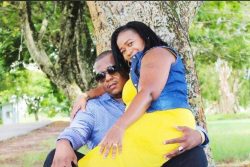CARACAS, (Reuters) – Three Venezuelan opposition lawmakers gave up their seats yesterday to try to defuse an acrimonious power dispute between President Nicolas Maduro’s government and the newly opposition-led National Assembly.
Venezuela’s Supreme Court had barred the three – plus a government legislator – from office pending a probe into alleged vote cheating in their jungle state Amazonas.
But the opposition, which won control of the legislature in December’s elections for the first time in 17 years of socialist rule, defiantly swore the three in anyway.
However, in a reluctant U-turn cheered by government lawmakers as a “victory for the people,” the opposition majority approved yesterday a letter from the three asking to leave the legislature pending resolution of the election dispute.
The Supreme Court, which almost always rules in favour of the government, had said congressional decisions would be null until the swearing-in of the three was overturned.
“We completely reject that ruling,” the three’s letter said. However, by leaving, “we help free parliament from the institutional ambush they (the government) want to lead it into.”
The opposition’s victory in the December vote gave them a long-sought power-base to take aim at Maduro, who succeeded late president Hugo Chavez, and try to undermine his grip on the OPEC nation of 29 million people
Days before the opposition took over the legislature last week, the outgoing government-controlled congress named 13 new magistrates to the 32-judge Supreme Court.
Critics saw that as a cynical ploy to ensure the government would win any constitutional clashes.
Earlier yesterday, the three opposition legislators and dozens of supporters protested outside the Supreme Court.
Illustrating the tensions, tomatoes and a firework were hurled at people walking into congress by a group of red-shirted bystanders who appeared to be government supporters, witnesses and some local media said.
The opposition argues that even without its barred legislators, it still has a two-thirds super majority that will enable it to, for example, fire ministers.
Without the four barred legislators, the opposition has 109 seats to the government’s 54. So the opposition would have two thirds of an effective sitting total of 163 seats.
The government, though, is likely to argue that based on the chamber’s total capacity of 167 seats, the opposition will have less than a two-thirds majority.
In addition to the move to defuse the dispute over the legislators, there was a rare sign of rapprochement in news that National Assembly president Henry Ramos twice talked by phone with Maduro’s new vice president, Aristobulo Isturiz, this week.
Many Venezuelans want dialogue so leaders on both sides can focus on the country’s economic crisis: a deep recession, runaway inflation and shortages of basics.









